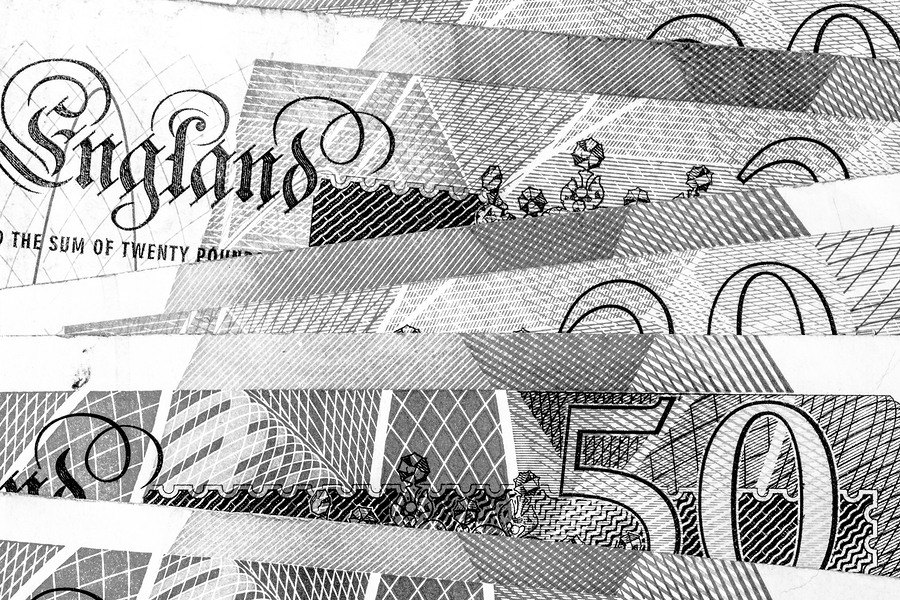Google bans payday loan advertising: We interview a PDL insider
On May 11 Google announced that it would soon be banning payday loan advertisements from its systems. From July 13 2016 the company shall no longer allow ads for loans where repayment is due within 60 days of the date of issue.
Furthermore, in the U.S., loans with an APR of 36 per cent or higher shall also be banned – though Google has not stated if or when this additional ban shall be implemented elsewhere.
David Graff, Director of Global Product Policy, stated that:
When reviewing our policies, research has shown that these loans can result in unaffordable payment and high default rates for users so we will be updating our policies globally to reflect that.
This change is designed to protect our users from deceptive or harmful financial products and will not affect companies offering loans such as Mortgages, Car Loans, Student Loans, Commercial loans, Revolving Lines of Credit (e.g. Credit Cards).
The announcement has since been met with applaud from the majority of the media, with some describing it as a “stand” against the industry.
Others have cheerfully pointed out that the industry now joins the ranks of tobacco, drugs, guns, and explosives, as industries that are banned from using Google’s display ad networks.
But what does the payday industry itself think of the change?
We spoke to an insider (who we shall refer to as Aaron for purposes of anonymity) within the industry to see what he, and those who work with him, thought to the coming ban.
TL;DR
- Comparing payday loans with guns, explosives and drugs is interesting, especially because you can also buy guns from Google Shopping – despite being banned from AdWords.
- The finality of the ban has been a shock for many, though the signs were there. Prior consultation or warning would have been appreciated.
- AdWords ban could lead to a PDL sites being more SEO friendly.
- Display ad networks will have to aim for long term and eventual ROI.
- Google recently invested in a PDL company in the U.S. and there could be a variety of reasons for it.

SALT: The payday loan industry is worth $46 billion, which is more than McDonalds and Starbucks combined – yet it is going to be banned from advertising on Google. Some of the other industries that have been banned from Google include tobacco and guns.
Many articles on the internet put PDL in the same category as those industries. How do you feel about that personally?
Aaron: I think it’s quite dangerous and also heavy handed across the world.
In the UK we are leading the way in how PDLs are treated, though in the U.S. it is less regulated as it is left to individual states to do the regulations, and some are stricter than others.
I can understand them [Google] taking that approach over there, where there isn’t perhaps as much care given to the customer.
Comparing PDL to explosives and guns, I did check and you can still buy guns from Google Shopping, you just won’t see them in AdWords – Google is still getting its percentage from it.
I would say this is more of a PR move than trying to do what’s best for its users if I’m honest.
SALT: We’ve also seen a lot of lenders on the internet that seem to be surprised by the finality of this change, but Google has been applying pressure for some time now.
Were you surprised by this?
Aaron: I think I was surprised that there wasn’t any consultation beforehand, it just seems to have been dropped – though there were some inklings that something might happen for a long while.
For example, if you’re a PDL company, you can’t bid on your brand terms if you’re only selling payday loans. Before that, Google brought in rules where you couldn’t bid on general loan terms if you were offering only payday loans.
They have been kind of moving on this for some time now, but I don’t think anyone expected them to drop it the way that they did. We all expected a bit of consultation or at least a heads-up before it was released publicly.
It is what it is.

SALT: We read an article yesterday that described the change as a ‘hammer blow’ to the industry. How much do you think that it will change it?
Aaron: I think it depends. For a lot of affiliates and lead gens, they do a lot of PPC. And actual companies that buy the leads, they tend to use the affiliates, so it’s hard to predict what it is going to do to the overall volumes.
I think we’re going to have to wait and see what will happen.
Going forwards I think it will push everyone towards being a bit more SEO friendly, which is maybe another reason Google has decided to drop this on them, to try and get people to be a bit more invested in good quality content.
Maybe they [PDL companies] haven’t been trying to do that as much.
SALT: Do you think if you invested the same amount of money into alternative ad networks as you do in Google AdWords, that you would get the same ROI?
Aaron: Hmmm. The Google AdWords tends to have a good ROI. Probably I would say that if you invested it like-for-like, I think that there is going to be a hit in the short term.
But in the long term, yeah, you’ll make it back up.
I think money needs to be spent now to make the shortfall in five or six months’ time.
It’s not going to do it straight away because the great thing about AdWords is that it is instantaneous, whereas anything else is going to take a little nurturing before you get to the same level.
SALT: Facebook has also clamped down on PDL companies. Again, there are companies on there, but they aren’t allowed to pay for ads. How do you think a campaign would go on Twitter in comparison?
Aaron: I’ve not seen too many companies using Twitter so it might be something useful. I think a lot of the PDL companies out there don’t just do payday loans anymore, they do instalment loans over the 60 day limit – so they’ll still be able to advertise on Google and Facebook etc.
So I think that might be where we see people moving more towards, the one to six month loan, rather than the one month or one to 60 day loan.
I think that’s where we are going to see the market shift towards.

SALT: The Community Financial Services Association of America (CFSAA), has said that the new policy is “discriminatory and a form of censorship”, bearing in mind that Google is a website owned by a company. Would you say that it is true, what the CFSAA is saying?
Aaron: I agree somewhat, it is their advertising platform and they have the right to refuse advertising service to anyone – just as any business does.
But, I also think that if something is legal, it is quite hypocritical of them to be the moral police when they have a vested interest in payday loan companies.
It might be seen as Google trying to give themselves unfair advantage since they own a big chunk of LendUp in the United States.
SALT: Yeah, they invested and helped raise $50m in equity financing for LendUp – do you think it is strange that Google has clamped down on one of its own investments?
Aaron: We were having a chat about this yesterday in the office and I think it is one of two things.
Either one arm of Google doesn’t know what the other arm of Google is doing, which wouldn’t surprise me, or they are, more cynically, trying to maybe corner the market for themselves and soon we’ll be seeing Google Finance as another one of its brands to pop up.
But it’s a wait to see who will be proven right. I would like to think that they are doing it with the best intentions but at the end of the day they are out there to make money. So we shall see.
SALT: It is interesting because there are limitations on advertising with medicines on Google, though it is investing a hell of a lot of money in that area and also medical research…
Aaron: Yeah, they’ve invested a lot actually, if you look into the Google Ventures’ page, there’s a lot. The companies that they invest into range from everything from robotics to space exploration to mining – you name it, there isn’t something that they have not looked into.
Data is a big one, which is what you’d expect, and a lot of other ancillary stuff which you would never think of.

SALT: One thing that we have noticed is that while the media is reporting on Google changing its rules for PDL, they seem to be enjoying it while they’re doing it.
Aaron: Yeah, the media has always had a love/hate relationship with PDLs because it always makes for good soundbites when you talk about the APR of a monthly loan.
It’s nothing new and I don’t think it’s going to change any time soon.
There’s always going to be a corner of the market that won’t have access to regular loans and financial streams such as banks.
Now if Google does take away some stuff like this, I’ve seen perhaps 10 to 15 per cent of people say that they might end up using loan sharks or less savoury ways of borrowing short term.
You can deny people of a service, but they are going to look for it elsewhere, even if that is the black market.
SALT: Do you think that the PDL industry could dig itself out of the reputation that it seems to hold?
Aaron: I think it is slowly doing it. Ever since the FCA came down and put the interest rate caps on in the beginning of 2015, I think that has helped change things.
I think as well, the market has shrunk and we are left with the bigger companies that tend to treat their customers better.
A lot of the cowboys who gave the industry a bad name have gone out of it.
As it matures, as this is still a relatively new industry, digitally, it will become more customer experience focused. A lot of the bigger firms are now owned by U.S. companies who lead the way in customer service and experience.
I think it will happen, but it will take time to erase some of the things that have happened in the past. Especially with some of the older lending methods.
SALT: Thank you very much.
Aaron: Cheers.
